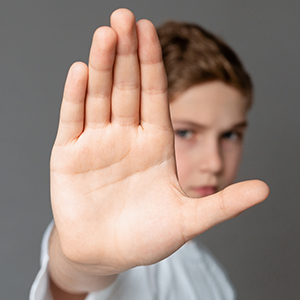
Tips for School Social Workers
- Be present at back-to-school activities and inform students and parents of your role and how you may be helpful to them during the school year.
- Create a brochure about school violence and bullying that offers resources for help, including your contact information and a picture of yourself so that students know who you are. Place the brochure in public places around the school, such as the main office, lounges and parent centers.
- Plan and implement class orientations about violence and bullying and how to report it, seek help, and prevent it.
- Collaborate with teachers to implement an anti-bullying curriculum.
- Create a “Random Acts of Kindness” bulletin board and invite students to submit posts. Projects like this may help prevent negative thoughts that lead to violence.
- Recruit local businesses and colleges as partners to support anti-violence and anti-bullying activities and assemblies at your school.
- Collaborate with the school librarian to feature a book of the month or week that addresses violence. (Example: The Bluford Series published by Townsend Press.)
- Plan monthly lunches with a student or a group of students who have been identified as bullies or who are the targets of bullies.
- Organize and implement a peer mediation team based on your school levels and age of students.
- Attend professional social work conferences on school violence to improve your knowledge and professional skills.
- Be available for counseling services and referrals as needed.
Tips for Students
- Tell an adult when you see or hear about activities that may cause physical or emotional harm to you or anyone else. School is a place where students have a right to feel and be safe.
- Never allow anyone to take control of you. You are in charge of you.
- Resist peer pressure to act inappropriately.
- Take the time to learn what to do during a school crisis.
- Walk home with others or close to a group that is going your way, when possible.
- If you hear about a fight planned for before or after school, on the bus, or while walking to or from school, inform your teacher, school administrator, school social worker, or parent.
- If you see someone with a weapon, tell your teacher, school administration, resource officer, school security, or school social worker immediately.
- Join clubs or groups that encourage positive activities such as athletic teams, boys’/girls’ clubs, fashion, school beautification, garden clubs, and drama clubs.
- If someone in your community or school is acting in an inappropriate way such as exposing themselves or trying to force you to go where you don’t want to go, scream "Fire!", run for help, and/or call 911.

Cynthia L. Henderson, PhD, LICSW, LCSW-C, is NASW’s senior practice associate for child welfare and school social work. She is a licensed clinical social worker with more than 25 years of experience in the areas of child welfare, school social work, health care, and behavioral health. She was selected as social worker of the year in 1994 and 2007 by the NASW District of Columbia Metro Chapter. She also received the Lifetime Achievement Award in 2019 from the NASW District of Columbia Metro Chapter. Cynthia received her MSW from Howard University and and her Ph.D. in special education and urban studies from the International Graduate Center in Montpelier, Vermont.